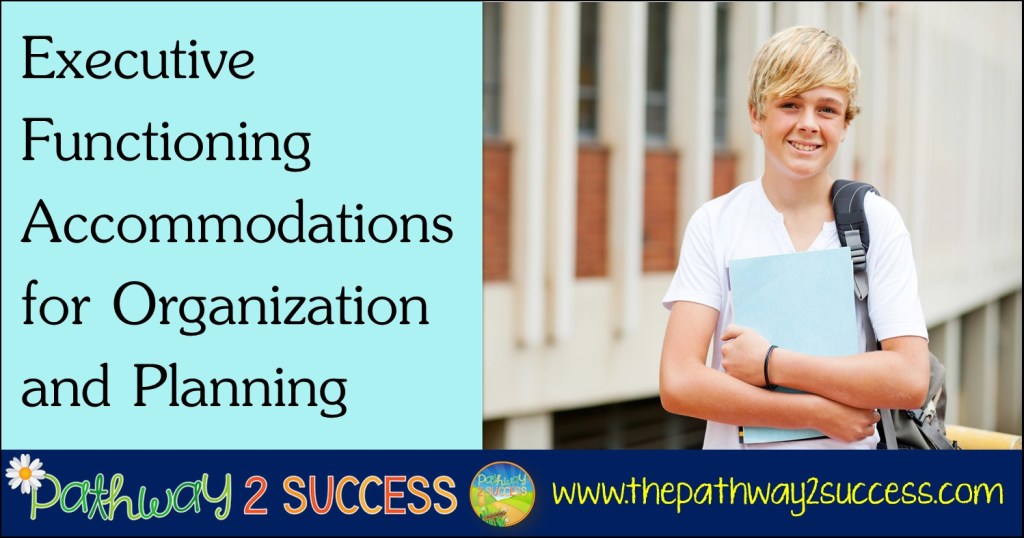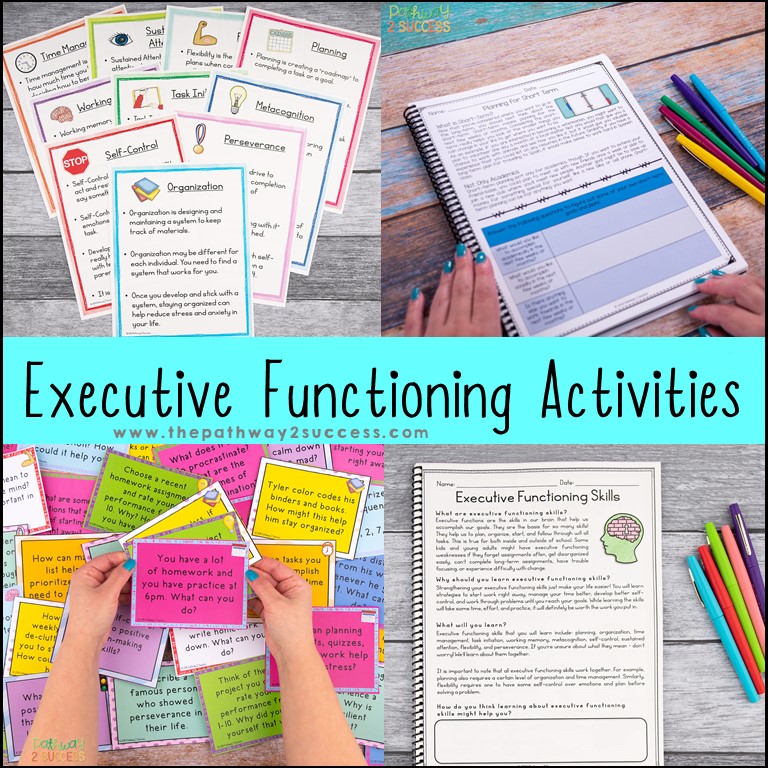
Executive functioning skills are the abilities that help us accomplish daily tasks. For students, this includes seemingly simple tasks like following a schedule, finding a homework assignment to turn it in, and gathering necessary materials for a class. While these examples feel like simple and easy tasks for many of us, they are actually often areas of significant struggle for some kids and teens.
The student who doesn’t bring the right materials to class. The teen who has no idea what class they have next. The young adult who can’t keep their binder organized. These are the students we are targeting. Those challenges can get in the way of their ability to be successful and do their best. The good news is that there are accommodations and supports that can help them shine.
Below are some accommodations and supports that educators can put into place to help learners develop compensatory strategies to succeed.

Accommodations for Organization, Schedules, & Planning
Post Daily Schedule. Post a daily schedule to help students know what is planned for the day. This can be a simple list posted on the board with an order of what topics or activities you will go through in class.
Individualized Schedule. Create an individualized schedule for a student to help them keep track of where they are going throughout the day. This schedule can be posted right on their binders (or inside).
Homework Folder or Binder. Create a designated homework folder for students in need. List “To do” on one side of the folder and “Done” on the other side. This provides organizational support and a reminder for what assignments need to be accomplished. Use this free homework binder page to help students create their own individualized binder covers.
Visuals. Visuals can serve as reminders and guides for what an organized binder, backpack, or desk looks like. You can also use visuals to give a reminder of what students need before they enter the room.
Extra Set of Materials. Keep an extra set of classroom materials, such as books, at home.
End-of-the-day Checklist. Use a checklist for the last five minutes of the day (or class) to help students make sure homework is written down, materials are tidy, and they have what they need for the rest of the day.
Weekly (or Daily) Organization Time. Schedule in organization time to allow for tidying up desks, backpacks, and binders. This time is essential to write into a plan because so often, it can be forgotten about.
Daily Check-In. A daily check-in can help students review their schedule, plans, and how they are feeling before moving on with the rest of the day.
Homework Planner. While a homework planner is a helpful tool for all students, it is essential for students with executive functioning difficulties. Use a specific journal (or app) to log homework and check it off when it is finished.
Color-code Materials. Color-code books, binders, and other supplies specific to classes. For example, the science book and binder might be color-coded with green. This provides a visual reminder to support with organization skills.
Work in Progress Folder. In the classroom, create a designated spot for assignments that need to be completed at a later time. This might be late assignments or tests/quizzes that still need to be finished. You can even use a hanging file folder to keep them organized for students. When the file is empty, students will know they are caught up.
Classroom Office. Set up an “office” with classroom materials such as notebook paper, pencils, pens, and other necessary materials. This provides students with a go-to organization spot if they don’t have what they need in the moment.
Leave Class Early. For students who struggle with gathering materials and getting to class on time, consider allowing them to leave just a few minutes early.
Preview Schedule Changes. When possible, consider discussing what changes with the schedule are coming up. This gives students a chance to understand the changes and build flexibility without feeling overwhelmed.
Teaching Executive Functioning Strategies
Accommodations and supports are important, but it is also critical to make time to teach students about their executive functioning skills and strategies they can use. Use this yearlong set of Executive Functioning Lessons and Activities to teach about how to plan, stay organized, manage your time, and more.

One more important note: Remember to give accommodations and strategies a chance to work. If something isn’t working, you can always head back to this list and find a new support to put in place.








Leave a Reply